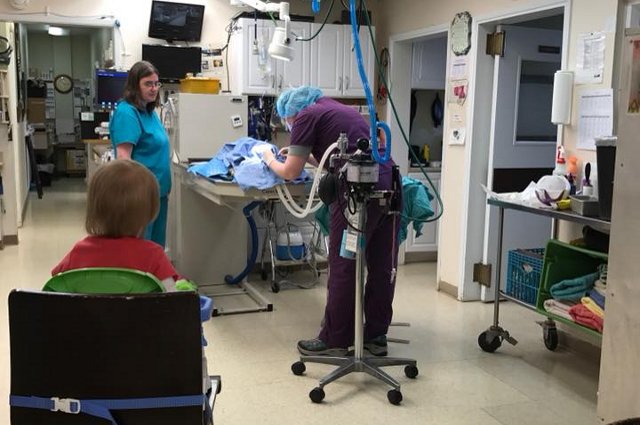According to Vancouver veterinary hospital, a vet, also referred to as a veterinary doctor or veterinary surgeon, is an animal-loving medical professional who practices mainly veterinary medicine treating injuries, illnesses, and diseases of animals without or with different forms of medication or surgery. Vets deal with the health and wellbeing of domestic and other animals both wild and living in residential or commercial premises.
- A vet school is one of the important institutions to pursue a career in this field. There are many veterinary schools that offer various veterinary doctor programs.
- The veterinary doctor programs offered by colleges and universities are quite helpful for those who wish to pursue an entry-level career in this field.
- Some of the subjects that are covered by the veterinary science degree program include physiology and anatomy, diagnostic methods and computerized tomography, pharmacology, pathology, clinical pharmacology, biology, immunology, nutrition, medical terminology, microbiology, medical ethics, medical laws, microbiology, physiology, diagnostic equipment, and machines, and veterinary procedures and practices. According to veterinary clinic in Vancouver, students pursuing a degree in veterinary medicine need a total number of 100 to enrol for a full undergraduate program and the same for the graduate program.
- In case of online studies, subjects like mathematics, science, physics, chemistry, and biology are compulsory for the students although they can opt for subjects like psychology, sociology, and communication if preferred. Students are required to undergo clinical training in order to complete their graduation successfully.
- Biomedical degrees are available in two-year curriculum, which covers all the basic requirements for entering the profession as a veterinarian. This is also followed by a one-year internship.
- Biomedical degrees in animal sciences enable students to specialize in a particular stream like animal physiology, anatomy, cell, and tissue culture technologies, forensic pathology, nutritional biochemistry, environmental, and occupational health, pharmaceutical sciences, and veterinary nursing. Veterinary medicine is one of the highly respected professions in the world with over 23% of the population employed in the animal healthcare industry.
- Students studying in veterinary medicine specialize in either animal physiology or medical care which requires knowledge in pharmacology, nursing, nutrition, and anatomy. The students get an overview of the human health issues affecting animals and learn to implement preventative measures for animal health.
They also learn how to use diagnostic equipment and perform appropriate drug therapies and surgeries. These courses include modules like Microbiology and immunity, nutrition, pharmacology, biology and pharmacopoeia. Students finish their degree by taking up master degrees like a PhD in veterinary medicine and Masters of Science in veterinary medicine.
